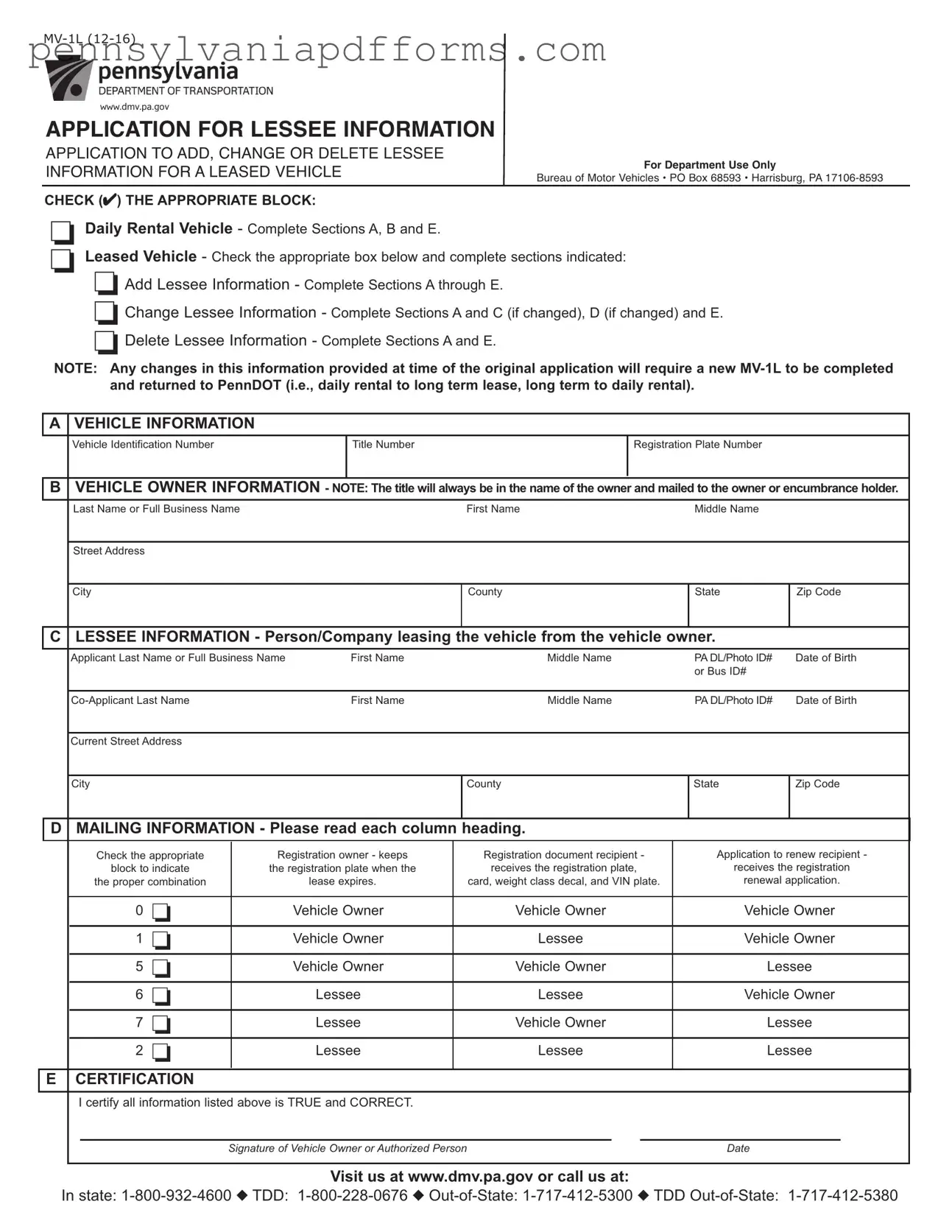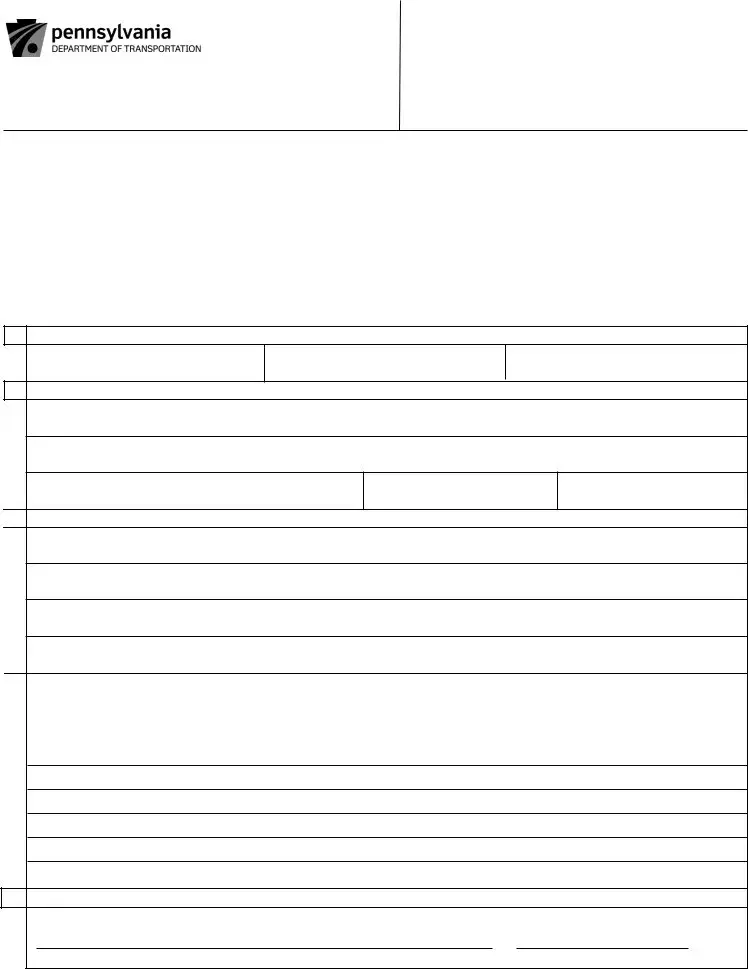The Pennsylvania MV-1 form serves a specific purpose in managing vehicle registrations, but it shares similarities with several other documents related to vehicle leasing and ownership. One such document is the MV-4ST form, which is the Vehicle Registration Application. Like the MV-1L, the MV-4ST requires detailed information about the vehicle, including its title number and VIN. Both forms ensure that accurate information is recorded with the Pennsylvania Department of Transportation, facilitating proper registration and ownership records.
Another related document is the MV-120 form, which is used for a title transfer. This form is necessary when a vehicle changes ownership. Similar to the MV-1L, the MV-120 collects information about the vehicle and the parties involved in the transaction. Both documents help maintain clear and updated records, ensuring that the Department of Motor Vehicles has the correct details on file.
The MV-41 form, which is used for a duplicate title application, is also comparable to the MV-1L. If a vehicle owner loses their title, they must complete the MV-41 to obtain a replacement. Both forms require personal information and vehicle details, reinforcing the importance of accurate records in vehicle ownership and leasing scenarios.
The MV-13 form, used for a notice of sale, has similarities with the MV-1L as well. This document notifies the DMV of a vehicle sale and includes information about the seller and buyer. Just like the MV-1L, the MV-13 ensures that the DMV is kept up-to-date with the current status of vehicle ownership, which is crucial for legal and regulatory compliance.
The MV-6 form is another relevant document, specifically for a vehicle title application for a leased vehicle. It parallels the MV-1L in that it collects lessee information and vehicle details. Both forms aim to clarify the relationship between the vehicle owner and the lessee, ensuring that the leasing arrangement is officially recognized by the state.
The MV-7 form, which is used for a vehicle registration renewal, shares the same objective of maintaining accurate vehicle records. While the MV-1L focuses on changes to lessee information, the MV-7 ensures that the vehicle remains registered and compliant with state regulations. Both forms are essential for the ongoing management of vehicle records.
The MV-9 form, which is for a change of address for vehicle registration, is also similar. When a vehicle owner moves, they must update their address with the DMV, just as a lessee must provide updated information on the MV-1L. Both documents facilitate the proper maintenance of contact information, which is vital for communication regarding vehicle status and legal matters.
The MV-11 form, which is used for an application for a vehicle title for a new vehicle, has a similar function. It gathers essential information about the vehicle and its owner, just like the MV-1L. Both forms are crucial in establishing clear ownership records, which helps prevent disputes and confusion regarding vehicle titles.
In similar fashion, understanding the Georgia WC 100 form is vital for those involved in workers' compensation cases, as it serves to formally request settlement mediation from the Georgia State Board of Workers' Compensation. By utilizing this form, parties can engage in mediation aimed at achieving an amicable settlement. It is important to familiarize oneself with the information and certifications necessary to navigate this process effectively, and more details can be found at https://formsgeorgia.com.
Finally, the MV-3 form, which is a request for a vehicle history report, shares a connection with the MV-1L in that it provides important information about a vehicle's past. While the MV-1L focuses on current leasing information, the MV-3 helps potential buyers or lessors understand the vehicle's history, ensuring informed decisions are made regarding leasing or purchasing a vehicle.


